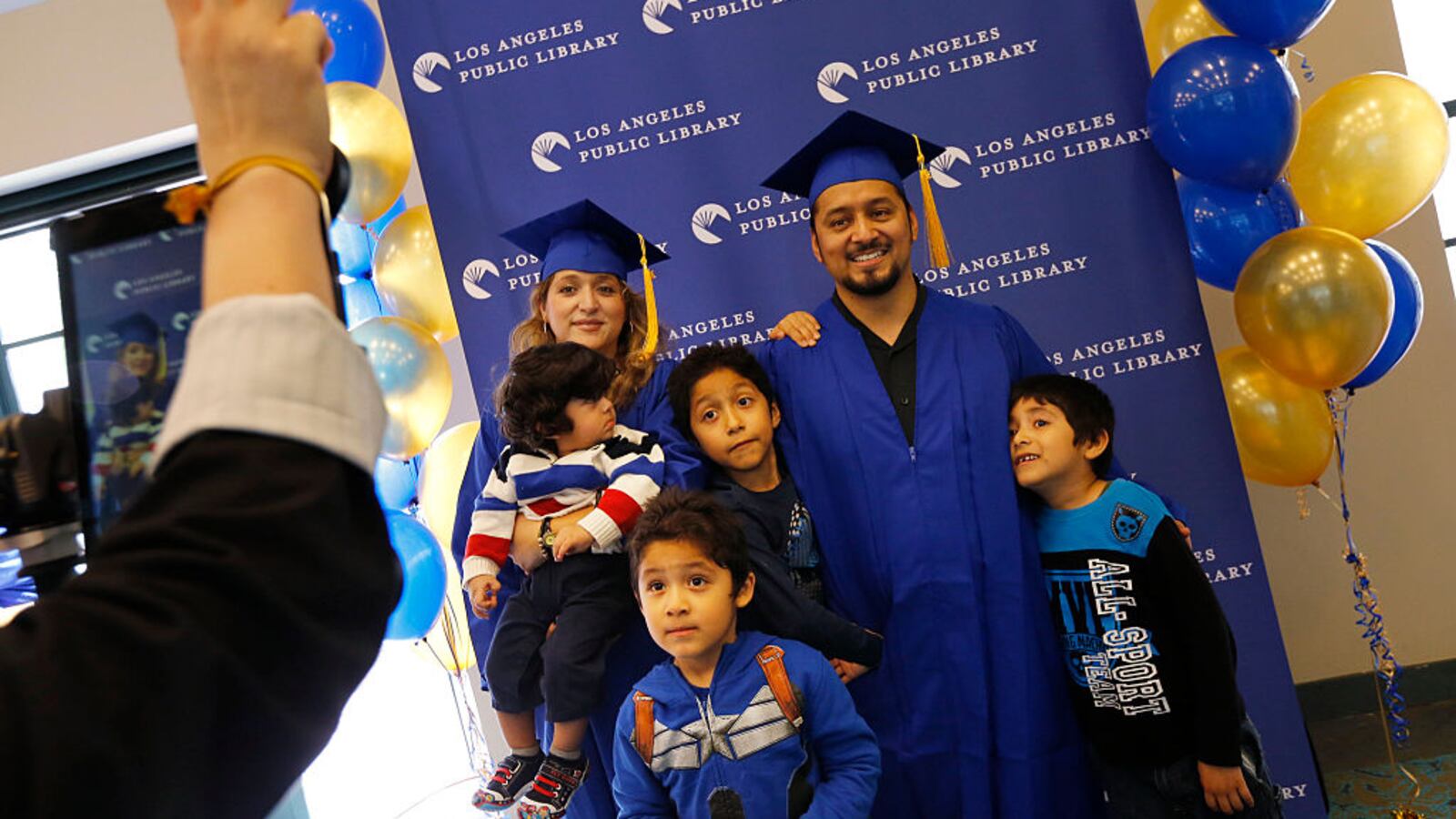If, in this moment of great tumult, you want to see what makes America great, go to a high school graduation. Better yet, snag a ticket to one that’s full of first-generation graduates and listen to their stories. And watch their parents.
During the past decade teaching government and economics at Ánimo Pat Brown Charter High School in South Los Angeles, I’ve been lucky enough to have a front-row seat at this milestone event.

Earlier this month, students walked across the commencement stage eliciting cheers and tears of joy from parents. They did so at a moment when the U.S. Senate refuses to bring the American Dream and Promise Act to the floor for a vote, amid fevered threats of tariffs on Mexican goods, and as news reports circulate about the unsanitary conditions at government detention centers housing young migrants.
I know, of course, that a high school diploma isn’t what it once was in this country — a reliable ticket to the middle class. I also know the struggles of the middle class, thanks to forces such as automation, outsourcing, and the weakening of unions.
My graduating seniors know this, too: This spring, I had them write letters to our incoming freshmen, advising them on how to best deal with the economic realities they will likely face. Of course, many students extolled in their letters the virtues of a college education, but some also explained how their writing skills would make them versatile employees and how the science and math classes they had resisted align with careers with significant growth. This and other exercises helped them make informed choices about pursuing higher education and career training — choices that reflect both the realities they face and the dreams that many of their parents came to this country carrying for them.
High school graduation, I’m reminded annually, is not solely in the transition from high school to the “real world.” It doesn’t just mark students’ first steps into adulthood. It is also a moment when families who came to this country despite significant barriers and because of real distress see the future they dreamed of for their children come alive.
I think of one of my students whose mother was deported back to Mexico this past school year, yet she persisted to graduation — clearly burdened by her circumstances but committed to finishing her last semester. I think of another student who will follow his older brother to one of the nation’s finest public universities; the brothers are both “Dreamers,” brought to the U.S. from Mexico as young children. During commencement ceremonies, I teared up as one student whose sister had died only a week prior proudly walked across the stage in an effort to keep her parents afloat. And I beamed knowing how one young graduate, bound for Princeton University, will be first in her immigrant family to attend college.
The graduation was emblematic of what those in the auditorium came to this country from and for: an America that believes in everyone’s power to improve their lot in life. While our current politics often stray far from that aspiration, our citizenry hasn’t. To find it, you need only look in the high school auditorium, at the students walking across the stage to collect their diploma, at their parents beaming up at them.
Joel Snyder is a veteran government and economics teacher at Ánimo Pat Brown Charter High School in South Los Angeles. His work is focused around civic engagement and higher education for his students and alums, and can be found at APBDemocracyLab.com. He is a graduate of the University of Michigan.
About our First Person series:
First Person is where Chalkbeat features personal essays by educators, students, parents, and others trying to improve public education. Read our submission guidelines here.


